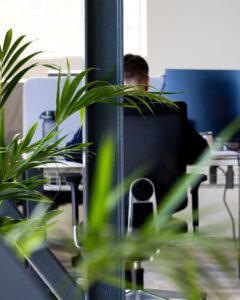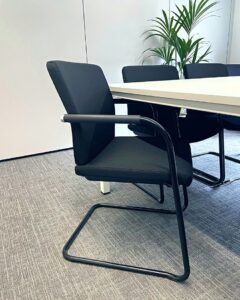The Scottish Environmental Protection Agency (SEPA) has introduced significant changes in waste management services in Scotland. As of 1 February 2024, Waste Upholstered Domestic Seating (WUDS) containing Persistent Organic Pollutants (POPs) are banned from landfill. Here’s what this means for our operations and our partners.
News & Blogs
Adapting to Scotland’s New POPs Waste Regulation

What are POPs and WUDS?
POPs are organic chemical substances that persist without breaking down, posing risks to human health and the environment.
WUDs are seating items commonly found in households or businesses, including sofans, office chairs, meeting chairs, desk screens, booths, and other soft seating. These items typically contain materials such as leather, synthetic leather, fabric, or foam, all of which may contain elevated levels of POPs.
How does this impact our operations?
We’ve thoroughly reviewed our processes to ensure we’re fully compliant with these new regulations, and the way we collect, store, and dispose of upholstered furniture items won’t be changing. As a licensed Waste Carrier, we transport and temporarily store products and materials with a goal to re-engineer, reuse, or recycle as much as we can. When that’s not an option, we then use our segregation process to break down products into component parts ensuring that no product or material is damaged.
Our waste management partners hold the responsibility of segregating foam from other materials and implementing recycling processes that are compliant with SEPA’s regulations. Given that POPs materials are classified as hazardous waste, there are now specific procedures and personal protective equipment (PPE) required for safe recycling.
As a result of this new recycling process, our waste partners have increased their fees resulting in additional costs directly related to POPs.
For more detailed guidance on SEPA’s regulations regarding POPs and WUDS, please refer to the full documentation provided by SEPA.
At Recycle Scotland, we understand the importance of adapting to evolving regulations while upholding our commitment to sustainable practices. Together, we can navigate these changes and continue working towards a cleaner, greener future.


